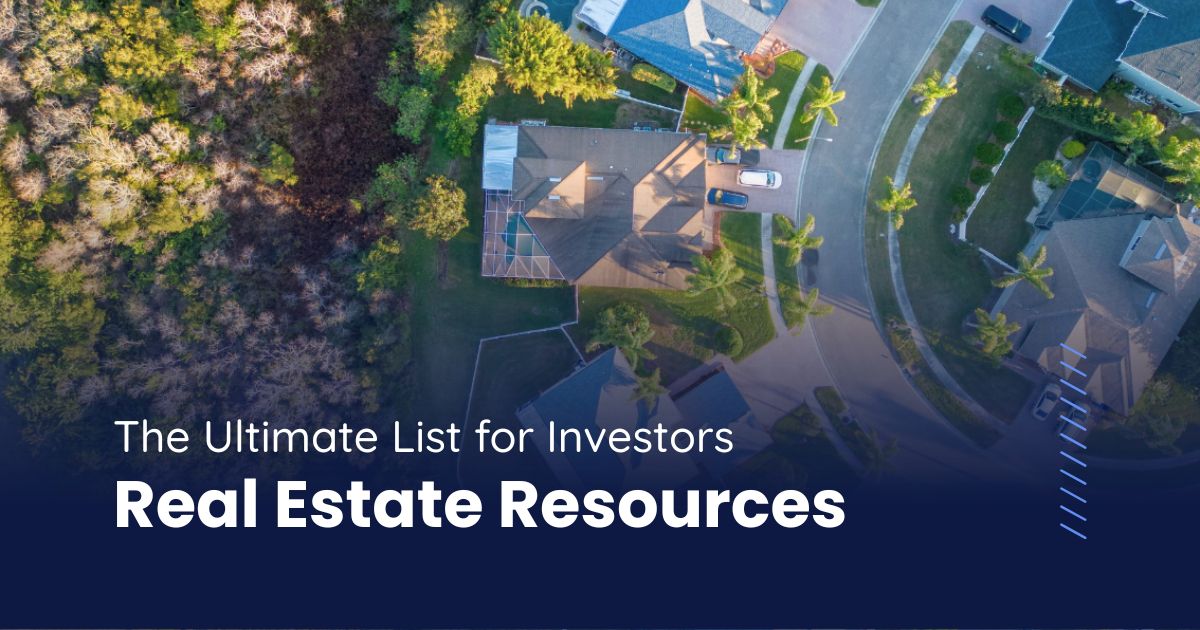Ready to build wealth through real estate but don’t know where to start? In this guide, we’ll walk you through some of the best resources and tools for learning how to buy and sell property.
Since 2010, ABL has helped countless investors turn their real estate investing dreams into reality with fast, flexible loan programs that require minimal paperwork and close within 30 days.
The Value of a Real Estate Education
The truth is that real estate investors never stop learning. Whether you’re a total beginner or a seasoned pro, there’s always room for improvement in your real estate business.
By studying the best real estate investing resources, you can save time and money, lower risk, uncover opportunities, and gain market insights, skills, and confidence you wouldn’t otherwise.
Below are some of the best resources for taking your real estate business to the next level.
1. Books
Books by successful real estate investors are a great way to absorb their wisdom.
For example, Rich Dad Poor Dad by Robert Kiyosaki can change your perspective on real estate and motivate you to start investing. Alternatively, The Millionaire Real Estate Investor by Gary Keller offers more tactical advice on how to run your real estate portfolio like a business.
For shorter reads, consider online ebooks. ABL has a library of free ebooks and whitepapers, including titles such as Flips, Flops, And Fortunes: Real Estate Experts Share Their Stories and The Introductory Rental Property Loan Financing Guide. Download them from our library now.
2. Videos
If you’re a visual learner, watch real estate videos. YouTube has many channels dedicated to teaching you how to start investing, such as Coach Carson and Graham Stephan. ABL also has several before-and-after fix-and-flip videos to help inspire your next flip.
3. Blogs
The internet is full of helpful blogs for learning how to invest in real estate, including this one. The ABL blog has hundreds of articles on how to finance a real estate deal, manage a construction project, execute a successful flip, build a rental portfolio, and much more. Other quality real estate blogs include REtipster and BiggerPockets.
4. Newsletters
Real estate newsletters are a great way to keep up with national and local market trends. For example, HousingWire and Inman News offer regular updates on the U.S. residential market, while CRE Daily and RealDeal focus on commercial real estate trends.
Other newsletters focus on education, such as ABL’s “Tips for Flips” email series. After subscribing, you’ll receive one bite-sized fix-and-flip tip per day for three weeks based on our vast experience analyzing (and financing) thousands of deals over the last fifteen years.
5. Real Estate Software
The right software can be a game-changer in your real estate business.
For example, tools like PropStream or DealMachine can help you find off-market opportunities. Similarly, customer relationship management (CRM) platforms like HubSpot and REsimpli can help you nurture leads and communicate with clients. Finally, property management platforms like Buildium or AppFolio can help you manage your rental portfolio.
6. Document Templates
Real estate transactions involve a lot of paperwork. Instead of hiring a lawyer to draft contracts and other documents from scratch each time, use reusable templates. You can find templates for lease agreements, purchase offers, pro formas, and more online.
At ABL, we have an entire document library, where you can download sample fix & flip draw schedules, construction draw schedules, and more.
7. Deal Calculators
When doing your due diligence on a deal, it’s important to run the numbers. This means calculating the cap rate, cash-on-cash return, and other ROI metrics.
For fix-and-flips, use ABL’s Private Hard Money Loan Deal Calculator. After entering the relevant details, it’ll tell you the total project cost, net profit, and return on project cost to expect. You can even enter your email to have the results sent to your inbox for your records.
8. Market Reports
Real estate firms and organizations like Zillow and NAR (the National Association of Realtors) regularly publish housing market reports. Reading them can be a great way to keep a pulse on the industry and key metrics like median home prices, days on market, and inventory levels.
You can also read ABL’s deep dives on popular real estate markets. Some of our latest coverage includes insights on cities like Atlanta, Georgia, and Charlotte, North Carolina, and states like Colorado and Illinois.
9. Networking Events
Real estate is a relationship business—you must earn people’s trust to get deals done. As a result, attending local networking events is a powerful way to connect and find opportunities.
Join your local Real Estate Investors Association (REIA) or an online group for real estate investing. Introduce yourself and find ways to help others. Eventually, you’ll see people return the favor. Lastly, check out our upcoming events page for events hosted or sponsored by ABL.
10. Mentors
No matter where you are on your real estate investing journey, there’s someone a few steps ahead of you. Finding a more experienced real estate investor to be your mentor can be a great way to accelerate your progress. They can guide your business and help you avoid costly mistakes, saving you time, money, and headaches in the long run.
If you’re looking for guidance in one of the 42 states we serve, our local loan experts are happy to help. They can help you analyze deals, secure funding, and more. Contact us today!
Implement Your Real Estate Knowledge with ABL
At some point, you must put your real estate education into practice. That’s the only way to benefit from it and also start learning from experience. But you don’t need money to buy a property outright. You can finance it with a private money lender like ABL.
We offer fast, flexible loan programs to help you seize deals and grow your portfolio faster. Whether you want to invest in fix-and-flips or long-term rentals, our financing can get you there faster. Pre-qualify for an ABL loan today!
